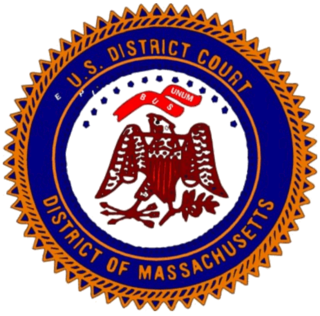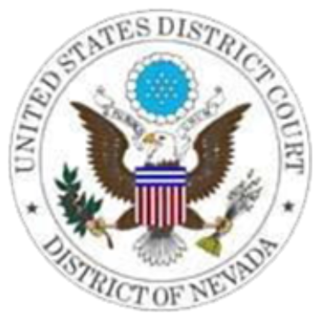Related Research Articles

The Computer Fraud and Abuse Act of 1986 (CFAA) is a United States cybersecurity bill that was enacted in 1986 as an amendment to existing computer fraud law, which had been included in the Comprehensive Crime Control Act of 1984. Prior to computer-specific criminal laws, computer crimes were prosecuted as mail and wire fraud, but the applying law was often insufficient.

A sock puppet is a false online identity used for deceptive purposes. The term originally referred to a hand puppet made from a sock. Sock puppets include online identities created to praise, defend, or support a person or organization, to manipulate public opinion, or to circumvent restrictions such as viewing a social media account that a user is blocked from. Sock puppets are unwelcome in many online communities and forums.
Final Exit Network, Inc. (FEN) is an American 501(c)(3) nonprofit right to die advocacy group incorporated under Florida law. It holds that mentally competent adults who suffer from a terminal illness, intractable pain, or irreversible physical conditions have a right to voluntarily end their lives. In cases deemed valid, Final Exit Network arranges what it refers to as "self deliverances". Typically, the network assigns two "exit guides" to a client and are present when they die, but the network states, and has proven in court, that it does not provide physical assistance in anyone's death; rather, their role is that of compassionate advisors and witnesses.

Megan Taylor Meier was an American teenager who died by suicide by hanging herself three weeks before her 14th birthday. A year later, Meier's parents prompted an investigation into the matter and her suicide was attributed to cyberbullying through the social networking website MySpace. Lori Drew, the mother of a classmate of Meier, was found guilty of cyberbullying in the 2009 case United States v. Drew. However, her conviction was overturned by the judge.
Sergey Aleynikov is a former Goldman Sachs computer programmer. Between 2009 and 2016, he was prosecuted by NY Federal and State jurisdictions for the same conduct of allegedly copying proprietary computer source code from his employer, Goldman Sachs, before joining a competing firm. His first prosecution in federal court in New York ultimately resulted in acquittal by the United States Court of Appeals for the Second Circuit. The outcome of his second prosecution and trial in New York state court was a split verdict dismissed by court, which acquitted him on all counts. One count in that order of dismissal was later overturned by New York Court of Appeals, which took a very broad interpretation of the statute, and on recommendation of prosecutors he was sentenced to time served without punishment. The same New York Court of Appeals denied his petition to appeal on double jeopardy grounds. His story inspired Michael Lewis's bestseller Flash Boys.
Cyberstalking and cyberbullying are relatively new phenomena, but that does not mean that crimes committed through the network are not punishable under legislation drafted for that purpose. Although there are often existing laws that prohibit stalking or harassment in a general sense, legislators sometimes believe that such laws are inadequate or do not go far enough, and thus bring forward new legislation to address this perceived shortcoming. In the United States, for example, nearly every state has laws that address cyberstalking, cyberbullying, or both.

LVRC Holdings v. Brekka 581 F.3d 1127, 1135 is a Ninth Circuit Court of Appeals Decision that deals with the scope of the concept of "authorization" in the Computer Fraud and Abuse Act. The major finding of this case is that even if an employee accesses a computer for an improper purpose, such as one that violates the duty of loyalty to their employer, the employee remains authorized to access the computer until the employer revokes the employee's access. The findings of this case were upheld by another Ninth Circuit decision in United States v. Nosal, 676 F.3d 854 and are the current law in this circuit.

United States v. LaMacchia 871 F.Supp. 535 was a case decided by the United States District Court for the District of Massachusetts which ruled that, under the copyright and cybercrime laws effective at the time, committing copyright infringement for non-commercial motives could not be prosecuted under criminal copyright law.

United States v. Nosal, 676 F.3d 854 was a United States Court of Appeals for the Ninth Circuit decision dealing with the scope of criminal prosecutions of former employees under the Computer Fraud and Abuse Act (CFAA). The Ninth Circuit's first ruling established that employees have not "exceeded authorization" for the purposes of the CFAA if they access a computer in a manner that violates the company's computer use policies—if they are authorized to access the computer and do not circumvent any protection mechanisms.

In United States v. John, 597 F.3d 263 (2010) United States Court of Appeals for the Fifth Circuit interpreted the term "exceeds authorized access" in the Computer Fraud and Abuse Act 18 U.S.C. §1030(e)(6) and concluded that access to a computer may be exceeded if the purposes for which access has been given are exceeded.

In International Airport Centers, L.L.C. v. Citrin, the Seventh Circuit Court of Appeals evaluated the dismissal of the plaintiffs' lawsuit for failure to state a claim based upon the interpretation of the word "transmission" in the Computer Fraud and Abuse Act, 18 U.S.C. § 1030. Jacob Citrin had been employed by IAC, who had lent him a laptop for use while under their employment. Upon leaving IAC, he deleted the data on the laptop before returning it to IAC. The Court of Appeals decided to reverse the decision and reinstated IAC's lawsuit.

In United States of America v. Aaron Swartz, Aaron Swartz, an American computer programmer, writer, political organizer and Internet activist, was prosecuted for multiple violations of the Computer Fraud and Abuse Act of 1986 (CFAA), after downloading academic journal articles through the MIT computer network from a source (JSTOR) for which he had an account as a Harvard research fellow. Facing trial and the possibility of imprisonment, Swartz died by suicide, and the case was consequently dismissed.
Lee v. PMSI, Inc., No. 10-2094, was a case in the United States District Court for the Middle District of Florida about whether the Computer Fraud and Abuse Act (CFAA) makes it illegal for an employee to violate an employer's acceptable use policy. The court ruled that violating an employer's policy did not "exceed authorization" as defined by the CFAA and was not illegal under the act.

Craigslist Inc. v. 3Taps Inc., 942 F.Supp.2d 962 was a Northern District of California Court case in which the court held that sending a cease-and-desist letter and enacting an IP address block is sufficient notice of online trespassing, which a plaintiff can use to claim a violation of the Computer Fraud and Abuse Act.

Pulte Homes, Inc. v. Laborers' International Union of North America, 648 F.3d 295, is a Sixth Circuit Court of Appeals case that reinstated a Computer Fraud and Abuse Act ("CFAA") claim brought by an employer against a labor union for "bombarding" the company's phone and computer systems with emails and voicemail, making it impossible for the company to communicate with customers. It held that causing a transmission that diminishes a plaintiff's ability to use its systems and data constitutes "causing damage" in violation of the CFAA.

Catfishing refers to the creation of a fictitious online persona, or fake identity, with the intent of deception, usually to mislead a victim into an online romantic relationship or to commit financial fraud. Perpetrators, usually referred to as catfish, generally use fake photos and lie about their personal lives to present themselves as more attractive for financial gain, personal satisfaction, evasion of legal consequences, or to troll. Public awareness surrounding catfishing has increased in recent years, partially attributed an increase in the occurrence of the practice combined with a number of high-profile instances.
People v. Marquan M., 2014 WL 2931482 was the first case in which a US court weighed the constitutionality of criminalizing cyberbullying. In People v. Marquan M., the New York Court of Appeals struck down an Albany County law that criminalized cyberbullying, declaring its restrictions overly broad and thus in violation of the Free Speech Clause of the First Amendment.

United States v. Valle was a criminal case in the Southern District of New York concerning Gilberto Valle, a New York City Police Department officer who had discussed on online fetish chatrooms his fantasies about kidnapping, torturing, raping, killing, and cannibalizing various women he knew, and had used a police database to find the addresses of some. Dubbed the "Cannibal Cop" by the media, Valle was convicted by a jury of conspiracy to commit kidnapping and, for the use of the police database, violations of the Computer Fraud and Abuse Act (CFAA). The presiding judge, however, acquitted Valle on the conspiracy charges notwithstanding the verdict, ruling that the prosecution had not proven that Valle's online communications went beyond "fantasy role-play". On appeal, the United States Court of Appeals for the Second Circuit upheld the judge's judgment of acquittal and further ruled Valle's misuse of the police database did not constitute a violation of the CFAA, thus acquitting him of the lesser charge.

United States v. Kane, No 11-mj-00001, is a court case where a software bug in a video poker machine was exploited to win several hundred thousand dollars. Central to the case was whether a video poker machine constituted a protected computer and whether the exploitation of a software bug constituted exceeding authorized access under Title 18 U.S.C. § 1030(a)(4) of the Computer Fraud and Abuse Act (CFAA). Ultimately, the Court ruled that the government’s argument failed to sufficiently meet the “exceeding authorized access” requirement of Title 18 U.S.C. § 1030(a)(4) and granted the Defendants’ Motions to Dismiss.
Van Buren v. United States, 593 U.S. ___ (2021), was a United States Supreme Court case dealing with the Computer Fraud and Abuse Act (CFAA) and its definition of "exceeds authorized access" in relation to one intentionally accessing a computer system they have authorization to access. In June 2021, the Supreme Court ruled in a 6–3 opinion that one "exceeds authorized access" by accessing off-limit files and other information on a computer system they were otherwise authorized to access. The CFAA's language had long created a circuit split in case law, and the Court's decision narrowed the applicability of CFAA in prosecuting cybersecurity and computer crime.
References
- 1 2 3 4 5 6 United States v. Drew, 259F.R.D.449 ( C.D. Cal. 2009).
- ↑ Stelter, Brian (November 27, 2008). "Guilty Verdict in Cyberbullying Case Provokes Many Questions Over Online Identity". The New York Times.
- ↑ Kim Zetter (July 2, 2009). "Judge Acquits Lori Drew in Cyberbullying Case, Overrules Jury". Wired. Retrieved December 29, 2018– via www.wired.com.
- 1 2 Maag, Christopher (November 28, 2007). "A Hoax Turned Fatal Draws Anger but No Charges". The New York Times .
- ↑ United States District Court for the Central District of California (May 15, 2008), Federal Indictment (Case 2:08-cr-00582-GW Document 1), p. 7 – via scribd.com
- 1 2 3 4 United States District Court for the Central District of California (November 10, 2008), Government's Trial Memorandum (Case 2:08-cr-00582-GW Document 64)
- ↑ United States District Court for the Central District of California (May 15, 2008), Federal Indictment (Case 2:08-cr-00582-GW Document 1), p. 8 – via scribd.com
- ↑ "Prosecutor: No Criminal Charges in MySpace Suicide". Fox News. December 3, 2007.
- 1 2 "Megan's Law; Cyber-bullying and the courts". The Economist. July 11, 2009.
- ↑ Pokin, Steven (November 11, 2007). "'MySpace' Hoax Ends with Suicide of Dardenne Prairie Teen". Suburban Journals.
- 1 2 Zetter, Kim (November 26, 2008), Lori Drew Not Guilty of Felonies in Landmark Cyberbullying Trial, Wired
- ↑ Brief of Amici Curiae: ELECTRONIC FRONTIER FOUNDATION, ET AL., IN SUPPORT OF DEFENDANT'S MOTION TO DISMISS INDICTMENT FOR FAILURE TO STATE AN OFFENSE AND FOR VAGUENESS (PDF), September 4, 2008
- ↑ McCarthy, Tom; Michels, Scott (July 1, 2009). "Lori Drew MySpace Suicide Hoax Conviction Thrown Out" . Retrieved December 5, 2021.
- ↑ United States District Court, Central District of California (Western Division − Los Angeles), Criminal Docket for Case No. CR 08-0582-GW
- ↑ Zetter, Kim (November 20, 2009), Prosecutors Drop Plans to Appeal Lori Drew Case, Wired
- ↑ "Missouri Lawmakers Pass Bill Against Cyber-harassment after MySpace Suicide Case". Los Angeles Times . Associated Press. May 17, 2008.
- 1 2 "Cyberbullying: Responses". National Coalition Against Censorship. October 1, 2009. Archived from the original on June 6, 2015.
- ↑ "Cyberbullying: Statutes and Policies". National Coalition Against Censorship. July 6, 2010.
- ↑ "Education Code, Section 32260-32262". Official California Legislative Information.
- ↑ 111th Congress (2009-2010) (April 2, 2009). "Bill Text: H.R.1966". Archived from the original on August 11, 2009. Retrieved December 1, 2009.
{{cite web}}: CS1 maint: numeric names: authors list (link) - ↑ Wertheimer, Linda (April 5, 2009), Prosecuting Cyber Bullies (Radio Broadcast on "Weekend Edition Sunday"), National Public Radio
- ↑ Zetter, Kim (May 15, 2008). "Experts Say MySpace Suicide Indictment Sets 'Scary' Legal Precedent". Wired.
- ↑ Kerr, Orin (August 29, 2009). "Lori Drew Opinion Handed Down – Judge Grants Motion to Dismiss on Vagueness Grounds". The Volokh Conspiracy.